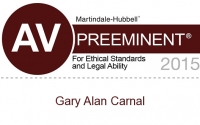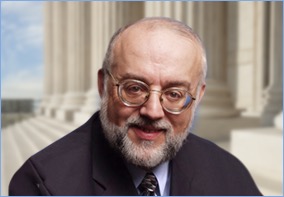How Should I Revoke a Will or Trust?
A will or trust is not set in stone, at least as long as you are alive. As your Florida estate planning needs change throughout your lifetime, you may wish to revise or revoke prior estate planning documents. It is important to make your intentions to revoke a will or trust as clear as possible to avoid confusion after your death.
Court Resolves Conflict Between Trustee, Estate Executor
A Florida appeals court recently addressed a case where a deceased woman had actually revoked a trust before her death. This case illustrates the difficulties that can arise when a person alters their estate plan in such a way as to leave ambiguity.
The decedent created a revocable living trust in 2004. As is typical with such trusts, the decedent also served as trustee during her lifetime. Upon her death, the trust instrument named the decedent’s cousin to take over as successor trustee.
In 2008, the decedent signed a last will and testament. This will named a personal representative who was not the decedent’s cousin. The will also stated that the decedent was revoking her “trust,” but she did not expressly use the name of the trust created in 2004. Nor did the trust itself specify a method for revocation.
After the decedent passed away in 2013, the personal representative named in the will and the cousin, purporting to act as successor trustee, went to court over the question of whether or not the decedent had actually revoked the 2004 trust through her 2008 will. A trial judge eventually decided the will did not revoke the trust, which meant the property transferred into the trust—including the decedent’s house and brokerage account still belonged to the trust. This was important because the trust and the will provided for different distributions of property.
The personal representative appealed. On June 15 of this year, the Florida Third District Court of Appeal in Miami reversed the trial judge’s decision and ruled in favor of the personal representative. That is, the appeals court held the will did, in fact, revoke the decedent’s trust.
Under Florida law, a trust may be revoked by a “later will or codicil that expressly refers to the trust.” A trust may also be revoked by “[a]ny other method manifesting clear and convincing evidence of the settlor’s intent.” While the decedent here did not “expressly” revoke her trust, the appeals court said there was clear and convincing evidence—primarily witness testimony—establishing her intent to replace her trust with the will.
Make Your Estate Planning Intentions Clear
But the Third District also pointed out that if a decedent expresses her intent to revoke a trust clearly and in writing, “no further evidence is required.” This is a critical point. You never want your estate plan to be open to interpretation or rely on potentially unreliable witness accounts offered months (or years) after your death. There is no substitute for an express revocation made in writing.
An experienced St. Petersburg estate planning attorney can help you with making any changes to your will or trust. Contact the offices of Carnal & Mansfield, P.A., if you would like to speak with someone today about your estate planning needs.







